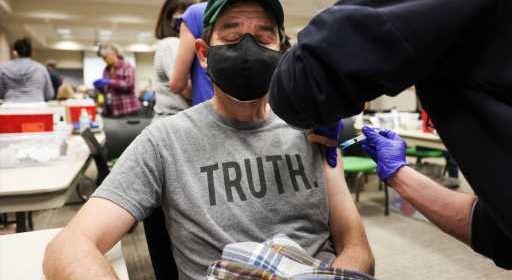Colorado GOP lawmakers want to make sure employers can’t force you to get COVID vaccine

Colorado is joining dozens of other states in introducing legislation that would ban employers from mandating COVID-19 vaccines for employees and customers.
The Republican-sponsored HB21-1191 is scheduled for its first committee meeting on Wednesday, though it faces an uphill battle with Democrats in control of the legislature and governor’s office.
While there’s been no such statewide or federal requirement for workers to get the COVID-19 vaccines so far, state health officials told The Denver Post last month they are exploring the idea of vaccine passports. Colorado’s major universities will require vaccines for students and faculty in the fall, which Gov. Jared Polis supported, and some businesses like Bar Max in Denver make patrons show proof of vaccination for indoor dining.
At least 85 bills on the issue of vaccination mandates have been introduced in statehouses across the country, and Arkansas signed one into law, according the National Academy for State Health Policy in Portland, Maine.
The Colorado bill would keep all employers (even hospitals) from discriminating against, sanctioning or firing an employee or applicant based on whether they’ve gotten the vaccine. It also prohibits government — the state included — and private businesses from discriminating against any clients or customers based on vaccination status.
The Food and Drug Administration has given emergency-use authorization to the COVID-19 vaccines, and manufacturers are in the process of seeking full FDA approval. Lone Tree GOP state Rep. Kim Ransom is one of the bill’s sponsors and said she’s heard from constituents who were “very concerned about mandating an experimental procedure.”
Employers can require vaccines that have been given full approval by the Food and Drug Administration, but it’s not clear if that’s the case for emergency-use authorization. The U.S. Equal Employment Opportunity Commission issued guidance saying employers could require workers to be vaccinated as long as they did not violate the Americans with Disabilities and the Civil Rights acts, but did not specify if that applies to emergency approval. Ransom believes federal law does not allow for it.
Democratic Rep. Susan Lontine of Denver calls the bill full of misinformation and could increase vaccine hesitancy in a state where 59% of adults have received at least one shot.
The bill cites information from the Vaccine Adverse Reporting System — a website that Democratic state Rep. Karen McCormick said allows anyone to input data and the information isn’t analyzed to prove any direct links. McCormick said she is frustrated that lawmakers are spending time on an issue that aims to create a false narrative.
From a business standpoint, the Denver Chamber of Commerce believes any vaccine mandate would “hinder a business’ ability to create a safe and healthy work environment” and open the door for costly litigation.
But groups like the Colorado Health Choice Alliance, which heavily opposed last year’s law tightening vaccine exemptions, back the bill. The nonprofit said the measure “honors the ethics of uncoerced choice in medical decisions for all people and maintains access in public and private venues.”
It’s that personal freedom — in public and private locations — that bill sponsor Rep. Tonya Van Beber is after. The Weld County Republican said it’s not meant to “discourage or dissuade anybody from receiving the vaccine” but rather “shield individuals from forced vaccination by outlawing mandates.”
Source: Read Full Article
